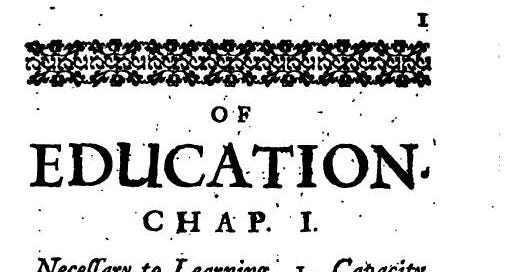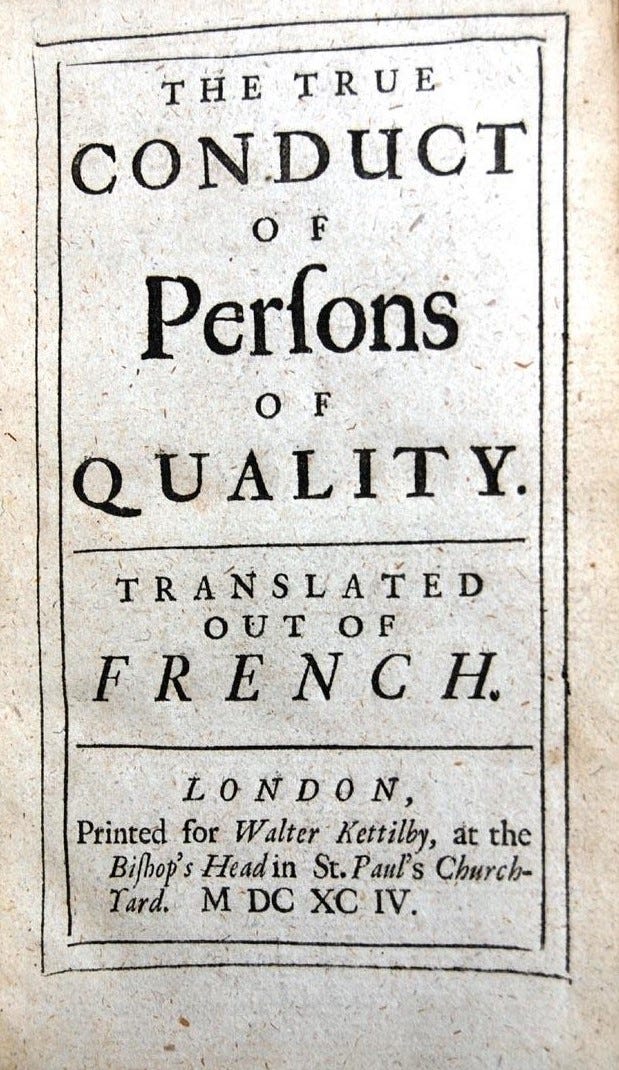‘No one imagined it was hard usage at home that made him do this. Everyone that knows me thinks I am too indulgent a parent as well as master,’ said Benjamin Franklin after he found and retrieved his fifteen-year-old son William following his attempt to abscond from his father by boarding a privateer that had pulled into the harbour.1 Perhaps Benjamin was right? Although everything might not have been perfect in the Franklin household, William was loved. There is no record that he was subjected to the same beatings that Benjamin experienced when apprenticed to work at his brother James’s printing business.2
After Benjamin ran from the abuse he suffered, he went on to become a self-made man, an accomplished printer, and the owner of his own newspaper, the Pennsylvania Gazette.3 His success enabled him to provide William with a strong foundation in early life, he was indulgent, and he would support him financially into his adult years.4
At the age of eight, William was placed with his first tutor, Theophilus Grew, a mathematician and astronomer, who was one of the first to be appointed professor at the College of Philadelphia. Then, for a short period, he studied at Annand’s Classical Academy, where he enrolled with the sons of Philadelphia gentry. Following this, he depended much on his father’s and uncle’s bookstores, ‘his readings were solidly classical and almost identical to the curriculum at the Boston Grammar School’.5
William read The Education of Young Gentleman, authored by Obadiah Walker and The True Conduct of Persons of Quality, by Nicolas Rémond des Cours. The latter work was translated from French.6 It was among William’s ‘most thumbed’ books.7 Both works were genteel etiquette guides offering advice on a range of subjects.
Remond des Cours in the chapter ‘What a Young Man Ought to Learn’ extolled the importance of learning the essential subjects of morality, politics, and history. He promoted the skillful use of rhetoric, ‘Tis yet of more moment to be master of true rhetorick, I mean that which does not only instruct a man to speak smoothly, but to carry away his audience with a persuasive force; this taking art upon some nicking occasions, is strangely significant, where blundering courage and blunt valour are baffled; this skillfully insinuates itself into the Soul of princes and great men, manages friends, enemies, strangers, uncontrollably conquers hearts, damps popular fury, and even stops the torrent of a flushed armies rage.’8 The study of maths, geometry, some geography, and philosophy are advocated alongside physical exercise to ‘scatter a free air through all a man's address, and a certain grace which surprisingly takes at first sight; which is no little advantage in the world’.'9 It is very clear from this chapter, the third in the work, that this advice guide was made for those with the means to attain a quality education. In the eighteenth century, learning was a long way from becoming democratised in the way we understand it to be today.
Walker’s Of Education, Especially of Young Gentleman is similarly geared to the well-to-do and serves as its title purports. Like Remond des Cours, Walker deemed study significant and saw that the history of one’s own country, antiquity, languages, experiments, maths, natural history, and foreign laws should be of priority.10
Walker opposed the notion that men are all born equal, and writes of variations in abilities and capacities, 'of these several degrees, it is diligently to be considered, that some have a bare capacity, sufficient to be instructed, moving only as they are drawn; who like bottles rendering no more than what is put into them’.11 However, Walker pointed out that industry and exercise can better the deficient. Instruction, imitation, and practice are advocated alongside autodidactic learning as a means to improve. 12 He frequently referred to both the reception and application of instruction. Walker makes it clear that the purpose of his writings was not merely to guide and advise young gentlemen on their own self-improvement. He wanted his readers to direct those that may come under their charge. Walker aimed to support future power-masters through his tutelage. This is elucidated in chapter four.
Those in possession of reputation, authority, and wealth were to serve as an example to their inferiors. The rich should provide spiritually and materially for their own family and relations, and create public works. 13 This latter imperative was one that Benjamin Franklin adhered to. A prime example of this is his foundation of the American Philosophical Society.14
Walker was keen to emphasise that one should not think better of themself because of their wealth, but realise instead that social obligations arise from this.15
In affirming a sense of duty Walker is joined by Remond des Cours who stated ‘they who stand on the upper ground, are begirt with so many cares, are fatigued with so much labour, and are obliged to summon so much vigilance, and application to their aid, that they are rather illustrious slaves, who are mounted to be wrecked by state hurricanes, than such as can enjoy undisturbed repose of their desires’.16
The call to duty of both writers was inclusive of the vocation or profession a young gentleman should select. Remond des Cours termed fixing upon employment ‘the greatest affair of a man’s life,’ and tells the reader to ‘be sure that self-love has no share in any resolution you shall take in so nice a juncture’.17 Walker recommended life as a courtier, magistrate, commander in war, ambassador, councillor, an officer under the prince, and clergymen as ‘callings and employments of gentleman’. These occupations all denote service to the realm and or public. 18 Both writers were expressly clear: gentility, wealth, or status were by no means an invitation to indolence and enjoyment. Noblesse oblige.
Both The Conduct of True Persons of Quality and Of Education, Especially of Young Gentleman stipulate appropriate approaches to different social groups. Remond des Cours ordered respect to be paid to superiors, allegiance to lawful masters, and fairness to equals. He also prescribed favourable reception to inferiors and those men under vassalage who ‘discharge their obligations with fidelity, and with generosity'. Chastisement is decreed for subordinates who forfeit their ties.19 Walker advised that faulty servants should be prudently punished so as not to engender envy, malice, or melancholy.20 He recommended a ‘humble and compliant’ approach to superiors but cautions against behaving in a ‘low and flattering’ manner. With equals one should be ‘grave, not morose, with inferiors courteous and fair spoken, not sullen or imperious.’21 Clearly, Walker and Remond des Cours envisaged the navigation of a range of social situations to be of primary concern in the lives of those they sought to lead through their maxims.
In seeking preferment in high places, both books suggested suitable comportment for this end. Remond des Cours wrote that favour should be won honourably and not by ‘sneaking compliances and mean flatteries'. Princes would cherish plain talking allied to discretion and reverence, he affirmed.22 Walker also criticised flattery, terming this behaviour ‘a quicker way to improvement’ but one ‘least enduring and more contemptible’.23 He cited merit, connections, and friends as sources of preferment. Courtesy, civility, prudence in conversation, and regular attendance in settings that offer the potential for employment are noted as ways to advancement. Aggrandisement should not come at the cost of honour.24
Walker warned against desiring promotion ‘for an evil end’, or desiring more than what is deserved at an unseasonable time, too eagerly, and for private over the public good. 25 Remond des Cours imparts genteel duty to his reader. He states that esteem accorded on the basis of birth and possession of an advanced post must be proportionate to individual knowledge, for this status to be justified.26 Primacy of honour, conduct, morality, merit and social responsibility were intrinsic to noble probity for these writers.
Conduct in conversation was expounded in both works. One should not ‘impose his own sense on everybody, and grate upon the ears of company with a dogmatic tone,’ wrote Remond des Cours.27 Learning, he reasoned, ‘inspires us with the sweetness of address, gives us discretion and circumspection’.28 Much study refines the gentleman, supporting successful sociability. Such reference to education is made throughout his disquisition.29 ‘Bitter jests’ and ‘venomous discourses,’ aimed at others should be banished, those indifferent to us should not be calumniated, as this is malicious.30 Here, as with much of the above, a sense of honour and morality is urged on the reader. Remond des Cours was joined in his denunciation of mean behaviour by Walker, who warns of bestial hectors and scoffers. He provided us with some fine epigrams; ‘he that make himself an arse, it’s fitting others should ride,’31 ‘for, as ordinarily it is the sooty oven, that mocks the black chimney,’32 ‘too much mirth and laughter renders those who partake what others are in their own imagination,’33 ‘the great rule is, nothing but trust before the face, nothing but good behind the back,'34 and ‘hear and read more than what you speak’.35
Willam Franklin certainly found occasion to put the precepts of gentlemanliness as espoused by Remond des Cours and Walker to his use. England would offer an apt scene to apply his learning. However, before he journeyed to the mother country, he would assume much of the responsibility obligated by the texts he read. The fifteen-year-old who sought adventure aboard a privateer would not have to wait for all that much longer in life before adventure visited him, and met his need for suitable employment, not to mention the potential for advancement…
This piece is the second in a series on William Franklin, to read the first article click here.
William Sterne Randall, A Little Revenge: Benjamin Franklin and his Son, 1984, 53
Ibid 52
For an account of Benjamin Franklin’s success as a printer and businessman see, Walter Isaacson, Benjamin Franklin: An American Life, 2003, chapters three, four, and five.
Randall, 51: Benjamin Franklin’s financial support for his son has often been cited by historians. See George Goodwin, Benjamin Franklin in London, 2016, 75, for reference of Benjamin supporting William’s education.
Randall 51
Ibid
Isaacson, 188
Nicolas Remond des Cours, The True Conduct of Persons of Quality, 1694, Early English Books Online Text Creation Partnership, 2011, The true conduct of persons of quality translated out of French. (umich.edu), Accessed: 1 December 2021, 17
Ibid, 17-18
Obadiah Walker, Of Education, Especially of Young Gentleman, In Two Parts, 1673, 35
Ibid, 4
Ibid, 4, 6, 7
Ibid, 33
American Philosophical Society, About the APS, About the APS (amphilsoc.org), Accessed 1 December 2021
Walker, 34
Remond des Cours, 146
Ibid, 44
Walker 34
Remond des Cours, 124
Walker, 90
Ibid, 300
Remond des Cours, 50
Walker, 316
Ibid, 293-297
Ibid, 297
Remond des Cours, 21
Ibid, 22
Ibid
Ibid, 85
Ibid 108, 109
Walker, 255
Ibid, 258
Ibid, 262
Ibid, 263
Ibid, 297





